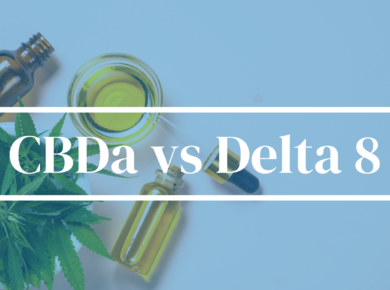When cultivating hemp plants commercially, hemp producers will want to get the most out of every single plant. Though most retailers and consumers focus on hemp flowers and their high-CBD levels, the organic material that remains after CBD-extraction is very important as well. Nonetheless, many people are unaware of hemp biomass and its commercial uses.
So, what exactly is hemp biomass? What’s the difference between industrial biomass and CBD biomass? How is hemp biomass regulated? Where can biomass buyers find it for sale? And where can hemp biomass sellers find a network of potential clients? We will cover all of this and more in the following sections, but first let’s take a look at the basics of hemp biomass, as well as its potential uses.
What is Hemp Biomass?
In order to better understand hemp biomass and its potential uses, let’s first discuss the hemp plant. Hemp is a particular type of the Cannabis Sativa species of plants. While very similar in many ways to traditional marijuana, hemp differs in its appearance and chemical makeup. One of the biggest differences between the two plants is the level of THC and CBD present. THC is the chemical compound that produces psychoactive effects when consumed, while CBD is known for various therapeutic effects including pain and stress relief.
Hemp plants generally contain less than 1% THC, whereas marijuana plants can contain anywhere between 15-40% THC, depending on the particular plant, as well as the cultivation process. However, hemp contains much higher quantities of CBD (cannabidiol). So, while the hemp plant cannot produce the same psychoactive effects as marjiuana, it can be utilized in many different therapeutic areas.
However, this does not fully explain the term “hemp biomass.” Biomass refers to any waste material from a plant or animal that is not used for food. So, when hemp flowers are cultivated and processed, biological material is left behind. This excess material is known as hemp biomass, and is generally made up of all the non-flower plant parts, like the seeds, stalks and/or leaves.
What are the USDA Regulations on Hemp Biomass?
As of December 2018, it is legal to grow and sell hemp and hemp-infused products in the United States, thanks to provisions in the Hemp Farming Act. That said, there are still complications surrounding the identification of hemp plants, and the USDA is still in the process of crafting rules that can be applied nationwide.
Since THC is still illegal in many states, local authorities need a way to differentiate between hemp plants, which contain less than 1% THC, and marijuana plants, which contain much higher levels of THC. As of now, there is little standardization in the hemp industry regarding plant testing, making it difficult for authorities in many states to determine the legality of individual materials.
That said, the USDA wants to follow in the footsteps of the Hemp Farming Act by making it easier for growers and retailers to comply with state and national regulations. Industry leaders anticipate greater standardization and clearer guidelines regarding CBD biomass by 2020.
UPDATE: USDA INTERIM GUIDELINES RELEASED HERE
What is CBD Biomass Used For?
You may be wondering why cannabis producers or retailers would want hemp biomass. After all, it is simply a collection of plant parts that do not contain as much CBD as hemp flowers. However, hemp biomass actually has some very important uses.
Fuel is the primary use for biomass. As researchers continue to look for the best resources for renewable energy, more attention will be given to the advantages of biomass. When burned, the energy that is naturally stored in hemp plants is released. This is particularly useful for farmers and other small to midsize enterprises in need of renewable energy. Additionally, hemp plant growth has a relatively quick turnaround time, with plants reaching maturity in about 4 months. However, hemp biomass does not need to be burned to create energy. In fact, a more modern method involves converting hemp biomass into liquid biofuel.
Finally, some producers also use hemp biomass to extract CBD oil, CBD distillate, or CBD isolate. Hemp fibre can also be used for the textile industry. However, the former requires CBD biomass, while the latter requires industrial hemp biomass.
Industrial Hemp Biomass vs. CBD Hemp Biomass
The two primary types of biomass are industrial biomass (also known as fibre biomass) and CBD hemp biomass. They can be differentiated by their respective chemical makeup, as well as their potential uses. That said, they are both composed of the excess materials from hemp plants.
What is Fibre Biomass?
Industrial hemp biomass, sometimes referred to as fibre biomass, can be used in a variety of ways, from producing clothing to fueling machinery. However, industrial biomass generally has lower levels of CBD, and is therefore not as useful in the production of CBD products. Naturally, hemp fibre biomass requires different processes, depending on the type of products it is used to create. For example, when creating clothing, the biomass must undergo a retting process, in which moisture is applied to the materials in order to separate the fibres.
What is CBD Hemp Biomass?
Alternationaly, CBD biomass refers to excess hemp plant material that is rich in CBD. This kind of biomass is best used to extract CBD oils, distillate, or isolate. The resulting solution can then be used for the production of virtually any CBD products, from lotions to edibles.
How to Transport Biomass
As stated previously, the differences in localized THC legalization can make standardization across state borders complicated. Until the USDA provides clarification on the proper testing methods, traveling over state lines with hemp biomass may require a few additional hurdles. To learn more about transporting hemp biomass, consult this article.
Wholesale CBD Biomass Prices

While prices vary by vendor and location, there is one place where you can compare prices and shop for wholesale biomass: Kush.com. At Kush.com, you can find the latest industry pricing data, as we update the average offer price, average listing price, and average offer accepted price on a monthly basis. We also use this data to make accurate forecasts about future prices, as well as predictions regarding material and product availability by region. To learn more about how we collect and analyze our data, check out this link.
Since wholesale pricing can change from one month to the next, you will need to consult Kush.com for the most up-to-date prices. The chart above illustrates the current biomass price, though this will inevitably change going forward. This is why we are constantly collecting data and analyzing current pricing models across the broader market.
That said, there are a variety of factors that can affect CBD biomass wholesale prices, including, but not limited to, the following:
- Location
- Specific vendor
- Larger market trends
- Product shortage/surplus
- Quantity
In any case, when you are in the market for bulk hemp biomass, it is vital that you do ample research before making a purchase. Thankfully, Kush.com has you covered. Our data will not only show you how prices have changed recently, but also how different market trends will affect prices in the future.
Where to Buy Hemp
 Shopping in a marketplace that is relatively new and dependent on ever-changing legislation can be intimidating. After all, if you’re in the market to buy hemp biomass, you won’t want to choose a vendor that has not been properly vetted. You could end up losing a lot of money if you’re not careful. Similarly, if you want to sell hemp biomass, you will need to have access to a large network of interested wholesale buyers.
Shopping in a marketplace that is relatively new and dependent on ever-changing legislation can be intimidating. After all, if you’re in the market to buy hemp biomass, you won’t want to choose a vendor that has not been properly vetted. You could end up losing a lot of money if you’re not careful. Similarly, if you want to sell hemp biomass, you will need to have access to a large network of interested wholesale buyers.
This is where Kush.com comes in. Our marketplace bridges the gap between producers, processors, and retailers, ensuring that you have access to the most reputable buyers and sellers on the market. Every vendor and potential buyer in our network is carefully vetted and verified, making Kush.com the safest and most efficient way to purchase and sell hemp biomass, CBD, THC, and similar hemp-derived products. We currently have more than 15,000 active users, and thousands of product listings available.
Do you need a marketplace to find THC-free biomass for sale? If you would like to learn more, or if you’d like to buy or sell hemp biomass but don’t know where to start, check out the Kush.com Marketplace today!
Not looking for wholesale? For easy online orders shipped to your front door, try shop.kush.com
[contact-form-7 id=”7833″ title=”Hemp Raw Material Quote”]




